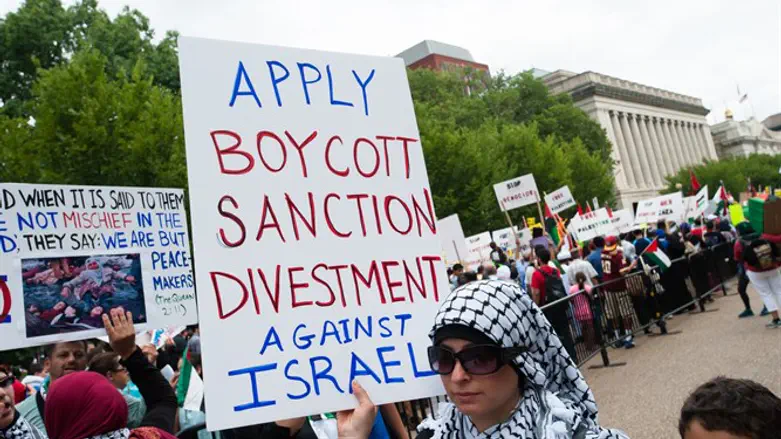
Brown University President Christina Paxson said she will not act on an undergraduate student referendum calling for the university to divest from companies doing business with Israel, JTA reported on Tuesday.
The referendum results were announced on March 22. Out of the 3,076 students who voted in the campus elections, 69 percent voted in favor of the referendum, according to the report.
It proposes that the university “identify and divest from companies that profit from Israeli violations of human rights” and accuses the university of furthering actions that “engage in human-rights violations” for its cooperation with Israel or firms that work with Israel.
Voting in favor were 27.5 percent of the undergraduate student body of the school, which is located in Providence, Rhode Island.
“Brown’s endowment is not a political instrument to be used to express views on complex social and political issues, especially those over which thoughtful and intelligent people vehemently disagree,” Paxson said in a statement in response to the vote, according to JTA.
“As a university, Brown’s mission is to advance knowledge and understanding through research, analysis and debate. Its role is not to take sides on contested geopolitical issues. I have been steadfast in my view that Brown should not embrace any of the planks of the BDS (Boycott, Divest, Sanctions) movement,” she added.
In a similar incident last month, the president of California's Pitzer College vetoed a move voted upon by students and faculty to suspend the college’s study abroad partnership with the University of Haifa.
College President Melvin Oliver in rejecting the motion said, “I am refusing to permit Pitzer College to take a position that I believe will only harm the College.”
“The recommendation puts in place a form of academic boycott of Israel and, in the process, sets us on a path away from the free exchange of ideas, a direction which ultimately destroys the academy’s ability to fulfill our educational mission,” Oliver wrote in a statement.
In response to Oliver’s veto, the Student Senate of Pitzer College drafted a resolution calling for his removal.
Over the past several years there have been several attempts in the United States, some of them successful, to impose an academic boycott of Israel.
In 2013, the American Studies Association (ASA) voted to boycott Israeli institutions. The head of the ASA later admitted to the New York Times that many nations, including many of Israel’s neighbors, have human rights records that are worse than Israel’s but said that “one has to start somewhere.”
The ASA's boycott decision was controversial even among its members. No universities actually came out in support of the boycott and at least four universities subsequently quit the organization in protest of the boycott.
In 2015, the American Anthropological Association (AAA) endorsed an academic boycott of Israel.
In 2016, however, the American Historical Association (AHA) rejected a resolution condemning Israel’s alleged “restriction of Palestinians right to education”.
There have also been attempts to boycott Israel by individual educational institutions.
In early March, the student government at Swarthmore College in Pennsylvania voted to approve a resolution calling on the school to divest from companies that do business with Israel related to Judea and Samaria.
In December of 2018, the Student Government Assembly (SGA) at New York University (NYU) voted in favor of a BDS-type resolution calling for the divestment of companies that do business with the IDF.
